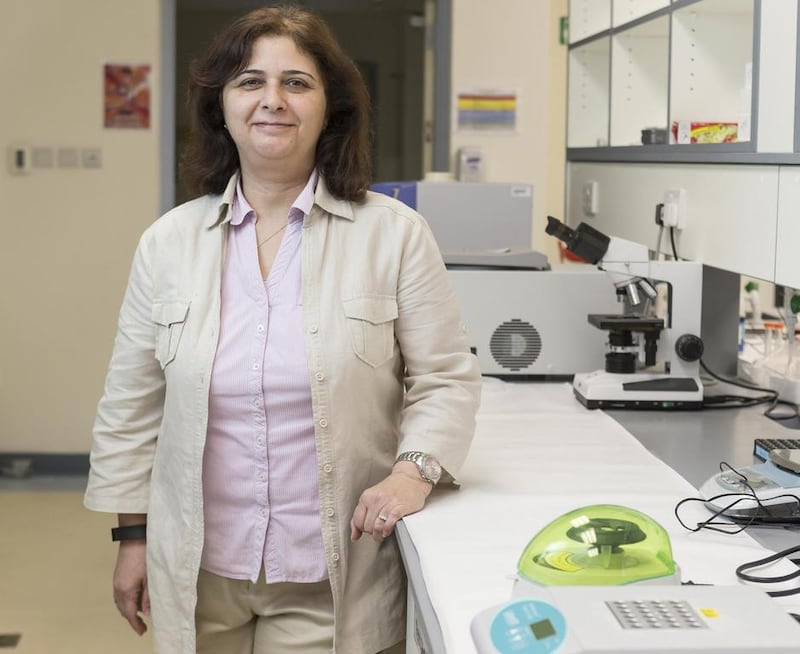SHARJAH // Medical researchers at the University of Sharjah are studying the health of infants fed on breast milk from birth up to two years.
About 200 breastfed babies are being tracked as part of the study funded by the Al Jalila Foundation for Women and Children that aims to form the basis of policy-making on maternal and infant nutrition.
The mothers and babies, Emiratis and Arabs living in the UAE, give blood samples while data on weight and mother’s diet are collected. Cognitive tests are also carried out on the children.
The biggest challenge of such research is enlisting women for the survey.
About 180 women from the original 250 are still active in the study.
“The first 1,000 days of a baby’s life are considered critical in a child’s future health,” said Dr Hadia Radwan, lead researcher.
“This study will help health authorities to devise policy and strategic planning, even raise awareness of breast feeding.”
Breastfeeding is believed to be the best form of nourishment for babies in the first six months and can help to prevent future conditions such as chronic illnesses including diabetes, obesity and cardiovascular disease, according to the World Health Organisation.
Prof Reyad Shaker Obaid, chairman of the department of clinical nutrition and dietetics at the university’s college of health sciences, said the research would give invaluable insight into child health and nutrition.
“There is very little research here on maternal and child health and nutrition compared with the West,” said Prof Obaid. “The UAE wants to encourage women to go to work and that affects feeding babies, working behaviour, and so these kinds of studies are essential to go alongside societal changes.”
Dr Radwan said most mothers breastfeed after giving birth but soon switch to formula. “Most mothers start, but as you go along the numbers decrease, up to six months when the numbers are more like 15 per cent.”
Lecturer Mona Zein has been leading the data collection exercise for the project.
“Chronic disease is on the rise here so we need to look at early years development,” she said. “Most of the women are from Sharjah and here there is a lot of awareness as to the benefits of breastfeeding, but it’s another thing to practise it for six months and beyond. ”
Dr Radwan hopes to follow the babies to school age and beyond. “We hope to form recommendations as to what are the best practices for child and maternal nutrition and health,” she said.
“We expect that those babies who were breastfed will be healthier.
“We are seeing the initial benefits but we need to see in the longer term. We anticipate those who were breastfed will be better equipped to fight off illness and disease.”
mswan@thenational.ae





